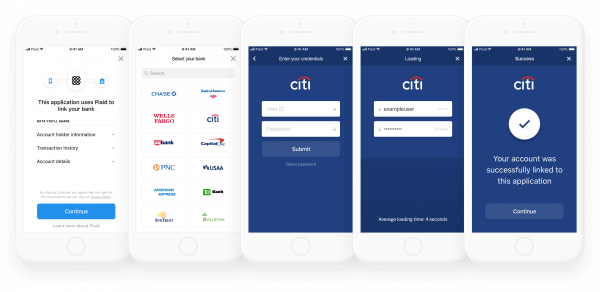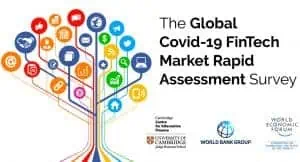Uncategorized
Each firm is a Fintech firm
Plaid is a Fintech that jumped to the highest of the information cycle when Visa (NYSE: V) introduced in January that it was buying the Fintech for $5.three billion.
Plaid’s providers allow shoppers the power to share their monetary info with hundreds of apps and providers equivalent to Acorns, Betterment, Chime, Transferwise, and Venmo. Plaid has emerged as a key service within the monetary providers sector. On the time of the announcement by Visa it was reported that one and 4 individuals with a US checking account have used, or are utilizing Plaid to attach with a fintech, together with crypto companies like Gemini, or conventional monetary providers companies.
Moreover, Plaid is a key driver within the transition to open banking and information entry. Not too long ago, Crowdfund Insider interviewed Plaid’s Coverage Lead John Pitts to study extra about his perspective on Open Banking and Fintech generally. Earlier than becoming a member of Plaid, Pitts spent greater than 5 years on the Client Monetary Safety Bureau (CFPB) and thus has a singular Fintech coverage perspective.
The idea of Open Banking / GDPR actually emerged in Europe and the UK. What’s the distinction in Open Banking improvement within the US versus Europe?

John Pitts: I’d problem that on Open Banking. Whereas we don’t have Open Banking as a regulatory mannequin in the US, we do have the roots of it in U.S. legislation, often known as Part 1033 of the Dodd-Frank legislation, which was handed on the top of the Nice Recession and assured the rights of people to entry their very own monetary info from their monetary establishments. This helped to spur the explosion of the Fintech sector in the US over the past 10 years. I’ve all the time stated, Europe and the UK are 5 years forward on Open Banking as a regulatory scheme, however the US is 5 years forward on open banking as a actuality.
The large distinction in improvement is de facto that Europe and the UK put sturdy Open Banking/GDPR regulatory regimes in place because the market was nonetheless evolving. On Open Banking this was very intentional – it was a authorities mandate to create extra competitors in monetary providers. Within the U.S. that competitors was already sturdy, so the U.S. method has allowed business to guide with innovation, forcing regulation to maintain tempo as soon as the market is mature.
There are benefits and downsides of every method, however they roughly boil right down to this: Europe dangers defining a market by regulation and hoping it’s what shoppers need and can profit from, and the U.S. dangers regulators falling behind the market. There isn’t any proper reply, however on Open Banking I believe the U.S. method has a slight edge as a result of it has resulted in shoppers having extra management over their information. They will entry all of their accounts, not simply the cost accounts UK and EU shoppers are restricted to. Giving shoppers entry to all the things, known as “Open Finance,” is the norm within the US, however the UK and EU are simply now beginning new rules to permit it.
As Head of Coverage for Plaid, you play a key function in serving to to information laws. The place does the US stand with regard to Open Banking kind guidelines? Is there any rising laws that’s helpful (or not) to the Open Banking sector?
John Pitts: Congress has already given authority and accountability to the CFPB to set Open Finance guidelines in Dodd-Frank Part 1033, a lot of the work sits with Director Kraninger if she sees it as a precedence. We actually suppose she ought to.
I consider the Congress will proceed to withstand sweeping EU-type legal guidelines like Open Banking, however I do suppose we’ll see vital incremental efforts take form that can impression the Fintech sector, such because the current updates to the California Client Privateness Act.
Wanting forward, we’d wish to see an growth of Dodd-Frank Part 1033 to incorporate companies along with particular person shoppers. If small companies had the appropriate and skill to entry and share their very own information digitally, I consider the rollout of the U.S. Paycheck Safety Program and the CARES Act, which supplied much-needed reduction throughout the pandemic, would have been much less chaotic, companies would have accessed funds extra rapidly, and mortgage forgiveness would have been simpler to acquire.
Plaid is the plumbing for a lot of Fintech companies. Unseen but important. How has COVID impacted Plaid’s providers? How has COVID impacted your clients?
John Pitts: Because the world went digital as a result of COVID-19, we noticed a steep rise in using Fintech apps and providers. In line with a BCG examine, within the UK, there was a 72% enhance in cell app utilization between March and April, and cell banking utilization has risen 36% since April. Moreover, 1 in four clients ages 18-34 plan to make use of financial institution branches much less or cease visiting bodily banks general after the pandemic ends.
Typically, there was an excellent quantity of debate relating to the impression of COVID on digital transformation. What are your ideas on this subject? And the way is that this impacting Fintech generally?
John Pitts: That transformation was already occurring earlier than the onset of the pandemic, however it has accelerated change exponentially and virtually in a single day. For the reason that finish of March, digital banking apps elevated revenues by 17% and digital banking apps within the US skilled a 60% enhance in downloads and installations as shoppers weren’t capable of go to bodily places as a result of lockdowns.
Simply because the 2008 monetary disaster spurred innovation, we’re seeing it right here, equivalent to in insurance coverage tech [Insurtech] and in small enterprise monetary providers. Congress and the Fed have supplied coverage assist for this shift–with Congress authorizing Fintech lenders to take part within the PPP program and the Fed opening a facility to offer liquidity to fintech lenders collaborating in these loans.

Globally, what are key sectors of alternative within the Fintech sector? What about distributed ledger know-how (blockchain)?
John Pitts: I see fairly a little bit of alternative with money stream underwriting. There are various individuals unnoticed of the banking sector within the US.
If a person lacks entry to fundamental monetary providers, then it’s extremely troublesome to construct credit score, which is important to making use of for loans, constructing wealth, and usually residing within the US. Money stream underwriting places management with the person, and the federal government has created initiatives to see this occur much more inside fintechs and conventional banks. Money stream underwriting not solely offers alternatives to these outdoors of the identifiable credit score reporting inhabitants, but additionally can spur the pandemic ravaged economic system by getting cash into the fingers of those that are ready to make use of and spend it correctly.
At present, 6% of US adults are unbanked and 16% are underbanked based on the FedReserve.
Is the final word finish a monetary service sector that’s ubiquitous – but unobtrusive? What about Huge Tech and Fintech? How do they play a job in the way forward for monetary providers?
John Pitts: Each firm is a Fintech firm.
We’ve seen tech corporations including monetary providers (suppose the Apple Card of Google Pay) at a fast clip. Plaid is at present discussing the way it will help 25% of the Fortune 100 corporations with their monetary providers methods. On the identical time, monetary providers corporations making huge bets on digital and constructing out the info infrastructure that’s essential to assist these methods.
Importantly, the buyer is the one poised to win from this, as banks and tech corporations more and more compete to ship the very best, most customized, monetary merchandise. However that doesn’t imply it’s unobtrusive–individuals wish to know and belief who helps them with their cash. Banks have achieved an incredible job constructing that belief for many years, and tech corporations have achieved the identical to ascertain belief on dealing with information (with some notable breaches of belief by each teams).
The trail to success for Fintech is to ascertain belief on equal footing with conventional brick and mortar establishments, giving shoppers and small companies higher choices with the identical safety they demand in the case of their cash.
 This interview is a part of an ongoing collection wanting on the evolution of the Fintech business with specific reference to the altering panorama in gentle of Covid-19.
This interview is a part of an ongoing collection wanting on the evolution of the Fintech business with specific reference to the altering panorama in gentle of Covid-19.
The collection has been initiated in assist of The International Covid-19 Fintech Speedy Evaluation Survey being carried out by the Cambridge Centre for Various Finance on the College of Cambridge Decide Enterprise College, in partnership with the World Financial institution and the World Financial Discussion board. The empirical information collected can be used to grasp the pandemic’s impression on the FinTech markets, how the worldwide Fintech business has responded and a number of the fast regulatory and coverage implications. Crowdfund Insider is proud to be a analysis associate for the survey.
